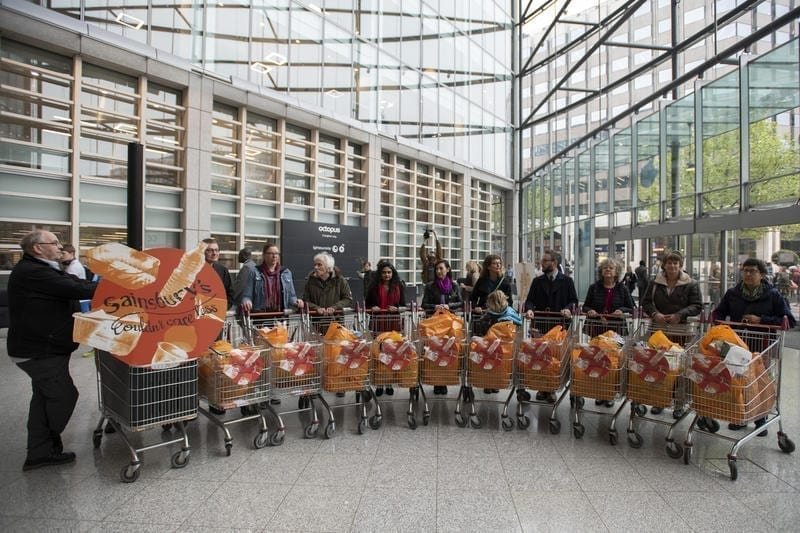Sainsbury’s CEO Mike Coupe has said ‘We are serious about reducing plastic’, as part of an announcement to make ‘further bold commitments to cut plastic packaging’.
The supermarket has said it will end the use of dark coloured plastics (which are difficult to recycle) across fresh foods by the end of 2019 and entirely by March 2020.
All plastic packaging will also be removed from Christmas crackers this year, and a trial scheme will allow customers to ‘pre-cycle’ unwanted primary and secondary packaging in store and leave it for recycling.
Sainsbury’s has also now removed plastic packaging from sweetheart and savoy cabbages, as part of a drive ‘to significantly reduce plastic packaging’.
How bold is ‘bold’?
In the same announcement, Sainsbury’s reminded us that it removed just 309 tonnes of plastic. Research from Greenpeace reveals that Asda was able to eliminate 6,500 tonnes of plastic over the period 01/01/18 to 27/03/19.
‘We’re surprised Sainsbury’s has publicly announced that they’ve so far removed 309 tonnes of plastic as if that is an achievement – that’s just 0.25% of their 2018 plastic footprint.
‘Greenpeace has been pressuring Sainsbury’s to tackle their plastic problem, and we’re pleased they’ve listened to us and to their own customers by moving away from black plastic and hard-to-recycle plastics, as other supermarkets are doing already.
‘However, inviting customers to remove unwanted plastic packaging as they leave the store shows Sainsbury’s is missing the point. They’re producing too much plastic packaging in the first place, and should be cutting it out rather than focusing on recycling and shifting responsibility for plastic packaging onto their customers.
‘Sainsbury’s must go much further and set yearly reduction targets and pledge to eliminate unnecessary plastic by the end of next year.’
ELENA POLISANO
Ocean plastics campaigner for Greenpeace UK
Plastics complaints on Twitter
On 29 April, Greenpeace activists visited Sainsbury’s central London HQ to deliver 4,724 Twitter complaints, as well as 2,309 more handwritten messages collected from customers, to urge the supermarket to tackle its plastic problem.
The move came after Greenpeace used a data tool to scrape all tweets in 2018 that mentioned plastics, and one of the top four UK supermarkets: Tesco, Asda, Sainsbury’s and Morrisons.
The analysis showed that Sainsbury’s received more plastics complaints on Twitter than any of the top four supermarkets last year. In total there were more than 12,800 tweets that were complaints about plastic or demands to improve policies on plastic, of which 37% were directed at Sainsbury’s.
Sainsbury’s received slightly more plastics complaints tweets than the UK’s biggest supermarket, Tesco, despite having a much smaller market share.
Both Asda and Sainsbury’s, whose merger was last week blocked by the Competition and Markets Authority, have a similar market share of around 15%. But Sainsbury’s received more than four times as many complaints about plastics over the year.
 Play Video about This Rock Might Just Save The World
Play Video about This Rock Might Just Save The World Play Video about Play 2 hours of rock
Play Video about Play 2 hours of rock Play Video about Play 2 hours of brook
Play Video about Play 2 hours of brook Play Video about Play 2 hours of sheep
Play Video about Play 2 hours of sheep











































